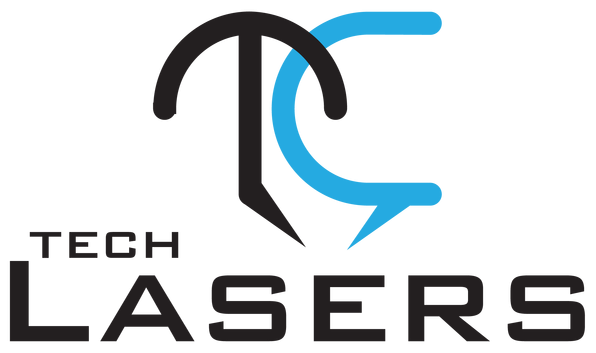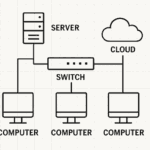The Shift Toward Customer-Centric Dealership Models
The automotive dealership industry is transforming significantly to meet modern consumer demands and preferences. In the past, dealerships prioritized sales and closing deals, but now they emphasize providing personalized and engaging customer experiences. This shift is driven by the competitive nature of the automobile industry, where long-term success relies on customer happiness and loyalty. Dealers who do not adapt to this change may lose their market share to more flexible competitors who prioritize customer relationships over transactions.
One pivotal element that facilitates this transformation is integrating advanced tools like an automotive CRM. Such systems enable dealerships to efficiently manage customer interactions and data, leading to more customized services and streamlined operations. CRM systems let dealerships manage customer interactions, preferences, and history, which facilitates the provision of individualized solutions catered to the specific requirements of every customer. By leveraging CRM technology, dealerships can enhance their customer-centric approach, improving overall customer satisfaction and retention. This shift benefits the customers and empowers the sales team with relevant data to make more informed decisions, ultimately driving sales and revenue growth.
Technological Integration in Automotive Dealerships
Integrating advanced technologies is revolutionizing the automotive industry, with CRM systems being the primary tool. AI and machine learning also enhance customer relationship management by providing deeper insights and automating routine tasks. This technology allows dealerships to swiftly and reliably analyze massive amounts of data, finding patterns and trends that guide business decisions—the efficiency of operations increases, reducing the overall manual work required. By automating administrative work, employees can concentrate on high-value tasks like fostering client connections and offering individualized care. Artificial intelligence (AI)-driven chatbots are an example of a technology that has been successfully integrated; they can answer basic consumer questions, point customers in the right direction, and increase customer happiness. These chatbots improve dealership efficiency by offering initial price quotes, scheduling appointments, and responding to often requested queries. Furthermore, dealerships can provide round-the-clock assistance thanks to AI technology, which increases customer confidence.
The Role of Data in Enhancing Dealership Operations
Data is crucial in the modern automotive dealership model, providing insights into buying patterns, preferences, and behaviors. This information helps dealerships tailor their services and marketing strategies, giving them a competitive edge. Accurate data analysis also optimizes inventory management, ensuring dealerships stock suitable vehicles to meet customer demand. By understanding customer preferences, dealerships can make informed stocking decisions, preventing overstock situations and ensuring popular models are available.
Personalization and Efficiency
Data analysis can enhance dealerships’ efficiency by providing personalized services. By understanding customer pain points, dealerships can tailor their outreach and promotional efforts, fostering loyalty and repeat business. This also streamlines inventory management processes. Conversion rates and engagement can be raised using data-driven, personalized marketing strategies. Customized content and targeted promotions attract potential buyers, driving sales and reducing marketing waste. Data analysis helps dealerships build stronger relationships, streamline inventory management, and create more relevant and effective marketing campaigns.
Adapting to the Digital Consumer
The rise of digital consumers has necessitated a shift in how dealerships operate. Online research, virtual tours, and other digital tools are now integral to car buying. Dealerships that invest in these platforms and engage with customers online are more likely to attract and retain them. Providing a robust digital infrastructure allows customers to interact with dealerships at their convenience, explore vehicle options, compare features, and even complete purchases online. This digital transformation meets customer expectations and opens up new opportunities for dealerships to expand their reach and engage with a broader audience. The ability to offer virtual tours and online consultations means that customers can enjoy a comprehensive browsing experience from the comfort of their homes, making the car-buying process more accessible and convenient.
Developing Long-Term Customer Relationships
Long-term customer relationships are crucial for dealership success. They involve excellent sales service and maintaining high standards post-sale. CRM systems help dealerships efficiently manage follow-ups, service reminders, and personalized offers. Regular communication and support enhance customer satisfaction and loyalty, leading to repeat business and referrals—consistent post-sale engagement, such as maintenance reminders and exclusive offers, fosters trust and reliability. Satisfied customers can become brand advocates, driving new business through positive word-of-mouth recommendations. Therefore, CRM systems are essential for dealerships to maintain high customer service standards.
The Effects of Reputation Management and Online Reviews
In today’s digital age, reputation management is crucial for businesses. Positive reviews can significantly influence customer decisions, so dealerships should prioritize excellent customer experiences and encourage satisfied customers to leave positive feedback. Online reviews can serve as testimonials, attracting new customers and building trust in the brand. Monitoring and responding to reviews demonstrates a dealership’s commitment to customer service and improvement. Effective reputation management also involves promptly addressing negative reviews and turning negative feedback into opportunities for improvement. By maintaining a proactive approach, dealerships can cultivate a trustworthy image and attract more buyers.
Handling Negative Reviews
Dealerships can show their dedication to client satisfaction and ongoing improvement by responding positively to negative evaluations. Promptly and professionally handling complaints can rebuild consumer trust and turn dissatisfied consumers into loyal ones. By taking a proactive stance, bad reviews can be lessened, strengthening the dealership’s reputation. Engaging with consumers on a regular basis to get their input and put suggestions into practice can enhance customer loyalty and service quality. This proactive strategy might result in a better client experience and an excellent reputation.
Training and Development for Dealership Staff
Investing in dealership staff training and development is crucial for maintaining industry standards. Programs focusing on customer service skills, technological proficiency, and sales strategies improve dealership performance. Empowered employees provide exceptional service, enhancing customer experience. Continuous professional development ensures staff are well-versed in the latest technologies and customer service techniques. This fosters a culture of growth, encouraging employees to stay updated with industry trends. Offering professional growth and career advancement opportunities attracts and retains top talent, strengthening the dealership’s operations.
Conclusion: Embracing Change for a Thriving Future
Car shops must use technology to enhance client experiences and adjust to changing times. By concentrating on data-driven tactics, digital engagement, and long-term relationship building, they may maintain their competitiveness in the market. For long-term success, adjusting to changing market trends and client needs is imperative. Dealerships can become industry leaders and provide exceptional value to clients by implementing innovative tactics and never giving up on advancement. The automobile sector is undergoing fast change, and sustained development and success will come from prioritizing customer-centric initiatives and using technology efficiently.

 PS5 vs Xbox Series X: Which should you buy?
PS5 vs Xbox Series X: Which should you buy?  Meta Quest 4 release date: what the leaks suggest
Meta Quest 4 release date: what the leaks suggest  Marvel Rivals Ranks: Full Guide To Competitive
Marvel Rivals Ranks: Full Guide To Competitive  Echo Show 8: The Human Guide to Using it Daily
Echo Show 8: The Human Guide to Using it Daily  Lenovo Legion GO 2: What It’s Really Like
Lenovo Legion GO 2: What It’s Really Like  How to Turn a New House Into a Home Quickly
How to Turn a New House Into a Home Quickly  How Efficient Network Asset Management Boosts Operational Performance
How Efficient Network Asset Management Boosts Operational Performance  Macos Tahoe: What’s new, What’s changed, and Why it matters
Macos Tahoe: What’s new, What’s changed, and Why it matters  Meta Quest 4: Release Date Rumors, Specs, Price Talk
Meta Quest 4: Release Date Rumors, Specs, Price Talk 